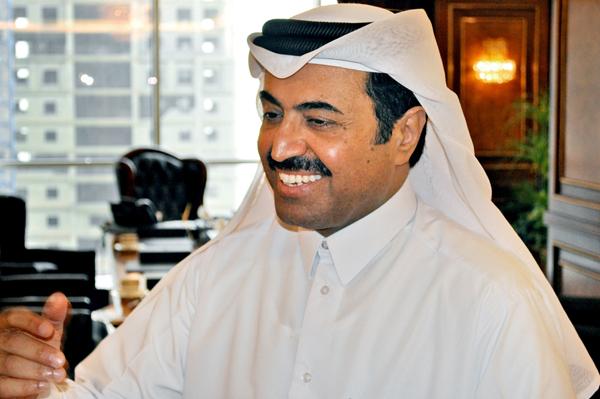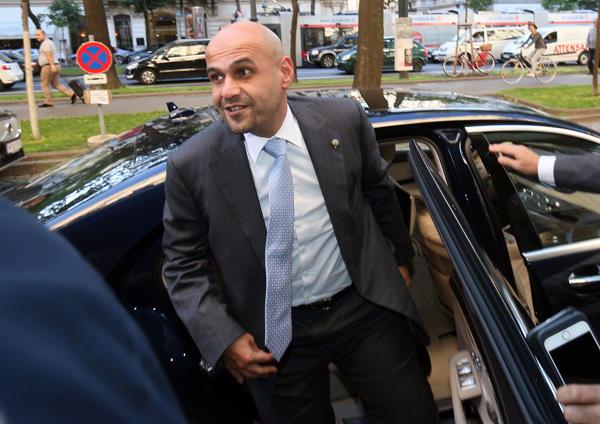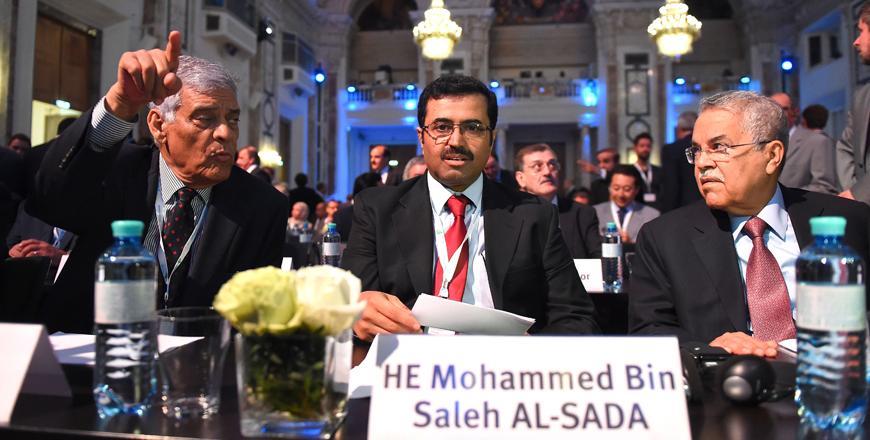You are here
Qatar energy minister wants 'fair' oil price
By AP - May 24,2016 - Last updated at May 24,2016

Mohammed Bin Saleh Al Sada, Qatar's minister of energy and industry, speaks to The Associated Press at his office in Doha, Qatar, Tuesday (AP photo)
DOHA — The oil market is slowly recovering from its steep drop over the past two years, but crude is still not trading at a "fair price" to encourage necessary investment, Qatar's energy and industry minister said on Tuesday, ahead of next week's meeting of OPEC producers.
In an interview with The Associated Press, Minister Mohammed Bin Saleh Al Sada, whose country currently holds the rotating presidency of OPEC, said a minimum price of $65 a barrel is badly needed at the moment.
He cautioned that the security of future supplies is a risk because of the price slump that has squeezed oil producers since 2014.
"The oil market is recovering slowly, but steadily. Luckily, the fundamentals show it is heading in the right direction," Al Sada said.
"I don't think we are yet at a fair price. We need to have a fairer price, so that we can have the ability to invest more in order to secure the energy supply to the world and avoid any price shock."
In the interview, Al Sada did not rule out reviving talks of a freeze in production among major producers, after similar negotiations collapsed in Doha last month.
"Nothing actually is canceled but we are reacting to the parameters of the market," he said.
The idea for a production freeze was the outcome of a meeting between Russia and OPEC members Saudi Arabia, Venezuela and Qatar in February as they attempted to stem a slide that at the time had pushed prices to around $30 a barrel from over $100 in the summer of 2014.
Other major producers gathered in Qatar to discuss the proposal last month, but failed to agree on a cap after Iran, which wants to boost its oil exports after years of sanctions, refused to join in.
Al Sada was careful not to blame Iran for the collapse of the freeze plan, saying the April meeting was nonetheless productive, because it gave producers a chance to discuss "new market fundamentals”.
Even without an output freeze, prices have been clawing their way back, settling Monday above $48 a barrel. That's still less than half their level less than two years ago.
Qatar and other OPEC member states will gather in Vienna next week to discuss what to do next, although industry observers are not expecting a major shift in policy.
It will be the first such gathering where Saudi Arabia will be represented by Khaled Al Falih, who has been recently named energy minister in a surprise Saudi Cabinet shakeup.
Venezuela has suggested that non-OPEC producers might also take part in the June meeting. At the interview, Al Sada did not rule that out.
Related Articles
LONDON — Oil producers including Gulf members of the Organisation of Petroleum Exporting Countries (OPEC) support holding talks next month o
VIENNA – Gulf OPEC members including Saudi Arabia are looking to revive the idea of coordinated oil-output action by major producers when th
VIENNA — The Organisation of Petroleum Exporting Countries (OPEC) which meets on output this week, appears to have changed its approach to U


















